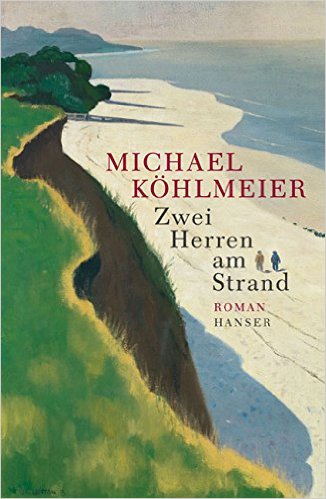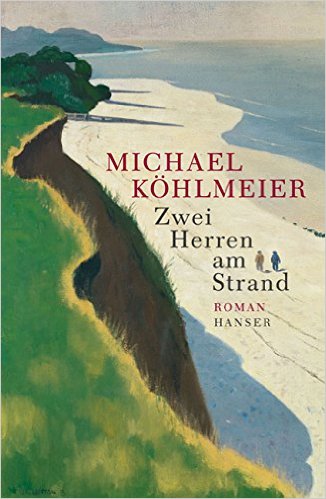
Finest Hour 173
Books, Arts, & Curiosities – Fact and Fiction about Churchill and Chaplin

August 14, 2016
Finest Hour 173, Summer 2016
Page 45
Michael Köhlmeier, Translated by Ruth Martin, Two Gentlemen on the Beach, Haus Publishing, 2016, 280 pages, £17.99.
ISBN 978–1910376461
Review by Werner Vogt
Werner Vogt is a writer and a communications consultant in Zurich. For his article about Churchill’s links to Switzerland, see page 28. For a review of his most recent book, see page 41.

2024 International Churchill Conference
 Originally published in Germany in 2014 as Zwei Herren am Strand, this novel by Michael Köhlmeier, an Austrian author of renown, deals with two great but very different men, Winston Churchill and Charlie Chaplin, and describes their relationship in general and their common problems with depression in particular. Given that Köhlmeier (born in 1949) is not only an experienced but also a well-decorated writer, expectations were of course high when the work was first published in the German-speaking world.
Originally published in Germany in 2014 as Zwei Herren am Strand, this novel by Michael Köhlmeier, an Austrian author of renown, deals with two great but very different men, Winston Churchill and Charlie Chaplin, and describes their relationship in general and their common problems with depression in particular. Given that Köhlmeier (born in 1949) is not only an experienced but also a well-decorated writer, expectations were of course high when the work was first published in the German-speaking world.
Köhlmeier’s endeavour was courageous, especially given that more has been written about Churchill than can be read and digested in a lifetime. It was certainly an original idea to approach the two giants of the twentieth century, their relationship and their dealing with “the black dog” (as Churchill called depression with a maximum of artistic licence) in a total and deliberate mix of fact and fiction. The idea of inventing history in a historical novel with fictional characters has a lot to it. And even when history is beefed up in order to qualify for an action thriller, as in Female Agents (starring Sophie Marceau), no one will really protest.
However, to approach two gigantic figures with a (declared) free mix of fact and fiction—as in Two Gentlemen on the Beach—is not a recipe for success. Even more than fifty years after Churchill’s death and more than seventy years after the end of the Second World War, too much is known about the wartime prime minister by too many people. And precisely this knowledge about Churchill will disturb the educated reader of Köhlmeier’s book.
The most basic problem is that Köhlmeier exaggerates the importance of Chaplin to Churchill. Even though there were encounters between the great statesman and the great actor, even though there certainly was a degree of mutual appreciation, there were definitely limits to the importance of the personal relationship between the two. The author greatly exaggerates in the general set up of the plot and equally confuses his readership in lots of details over which the more knowledgeable will stumble. The idea that Winston Churchill, together with a group of children from the Austrian province of Vorarlberg, should be taught by Charlie Chaplin how to be a clown is rather absurd. And the fact that the author freely invents sources like collections of letters adds more confusion.
The German original of Köhlmeier’s novel generated a lot of interest given the past work and merits of the author, but it was received by literary critics with much distance and scepticism. The Italians have a saying “Se non è vero, è ben trovato” (If it is not true, it is well invented). Unfortunately this is not the case with Köhlmeier’s novel. For the historically educated, not to say for Churchillians, the book is not a must read.
Subscribe
WANT MORE?
Get the Churchill Bulletin delivered to your inbox once a month.


